Of late, the Parliament, the Executive and the Judiciary seem perpetually locked in the battle of supremacy, and Article 124 of the Constitution of India, in particular, has long been a battleground of a tussle between the Union Government and ‘the Union Judiciary’ for seeking that primacy in the matters of appointment of judges to the Supreme Court and the various High Courts.
Before the verdict handed down in the case of SC Advocates-on-Record Association V Union of India (1993) 4 SCC 441, the judges were appointed to the Supreme Court by the President of India “by warrant under his hand and seal after Consultation with such of judges of the Supreme Court and of the High Court …. as the President may deem necessary…”
This expression with regard to ‘consultation’, however, was radically altered by the Supreme Court in the above-referred case in 1993, when the word “consultation” was interpreted by the 9-judge bench to mean “Concurrence” or “Conformity”, with the opinion of the Chief Justice of India. It was further laid down that in the case of a Supreme Court; the proposal is to be initiated by the CJI, and in the case of a High Court by the Chief Justice of that High Court and in the event of Conflict of Opinion, the view of the Chief Justice of India is to prevail.
It is not that the system in place prior to 1993, in which the executive had the primacy, as per the express provision of the Constitution, was found rotten or broken down by the Supreme Court. In fact, to the contrary, some very eminent judges such as Justice CA Vaidyialingam, Justice VR Krishna Iyer, Justice RS Sarkaria, Justice VD Tulzapurkar, Justice O Chinappa Reddy, and Justice Kuldeep Singh, amongst the many more outstanding judges, had adorned the chair, under the original system in place prior to 1993.
Recently, the Supreme Court held in Rajesh Sharma V State of UP (2018) 10 SCC 472, that the “Function of this court is not to legislate but only to interpret the law.”
In Kotak Mahindra Bank VA Bala Krishnan (2022) 9 SCC 364, while relying upon some earlier rulings on the point, a 3-judge bench of the Supreme Court has held that “it is not permissible for the court to add or subtract words to a statute or read something into it which is not there. It cannot re-write or recast legislation.”
The Supreme Court, however, does not seem to listen to itself, as is apparent from the judgement in the case of the appointment of Chief Election Commissioner, Anoop Baranwal V Union Of India, wherein even after noticing that, “while making a law is ordinarily a power with the legislative branch and being a power it cannot be compelled by a court….”, yet being “concerned with the devastating effect of continuing to leave appointments in the sole hand of the executive….”, the Supreme Court found, “that the time was ripe for the court to lay down norms”.
The “norms” laid down provide for the appointment of the Chief Election Commission on the same pattern as the Director of the CBI that is by the President on the advice of a committee consisting of the Prime Minister, the Leader of Opposition, and the Chief Justice of India. Nothing illegal, however, was found in the appointment of the new Election Commissioner, despite summoning the file of his appointment from the Union Government.
The question is, is there any limit on the powers of the Supreme Court, or does the Supreme Court being ‘Supreme’ has no limit on its powers? It needs to be clarified that the expression “Supreme Court” must be interpreted to mean supreme of all courts as distinguished from supreme of all authorities. The preamble of the Constitution of India makes it very clear that the people of this country are the ultimate source of all power, whose ‘solemn resolve’ has fathered this Constitution and therefore are undeniable ‘SUPREME.’
It is no one else but the people of India whose collective resolve has created this Constitution. The question that next arises is which institution best reflects the collective will of the people of India. It surely cannot be the Supreme Court and has to be the Parliament, whose members are directly chosen by the people themselves, and therefore the weakening of this institution will necessarily amount to the weakening of our democracy.
The question that next begs for an answer is, can the Supreme Court take over the functions of the Parliament? If our democracy is to fit the most accepted definition of ‘democracy’, which is, ‘a rule of the people, by the people…’, then the answer has to be in the negative.
The role of the courts, thus, has to be only to interpret the law framed by the Parliament and to apply the same in a given set of facts and circumstances. In doing so, it is important not to wander off too far away from the actual text of the legislation and to reach a conclusion that is not borne out from the plain and honest reading of the text of the legislation, even if the court is able to write a judgement that spreads over hundreds of pages, for reading in the text of the statute what clearly is not provided for or not intended to be provided for, has to mean taking away from the exclusive reserve of the people of India and thereby diluting their power and consequently the democracy.
Let us now examine the practical application of the new interpretation given to the language of Article 324(2). It is easy to see that in a committee consisting of the Prime Minister, the Leader of the Opposition (who is a leader of the party rejected by the people) and the Chief Justice, the Prime Minister and the Leader of the Opposition will almost never agree upon a same person, giving the actual power, to choose the Election Commissioner, to the CJI. A position not only not envisaged in the Constitution but also one that clearly and decisively takes power to appoint the EC from out of the hands of the representatives of the people of India and thereby from out of the hands of the people of India. A situation where the ‘Supreme’ beats the ‘Supremer’ still.



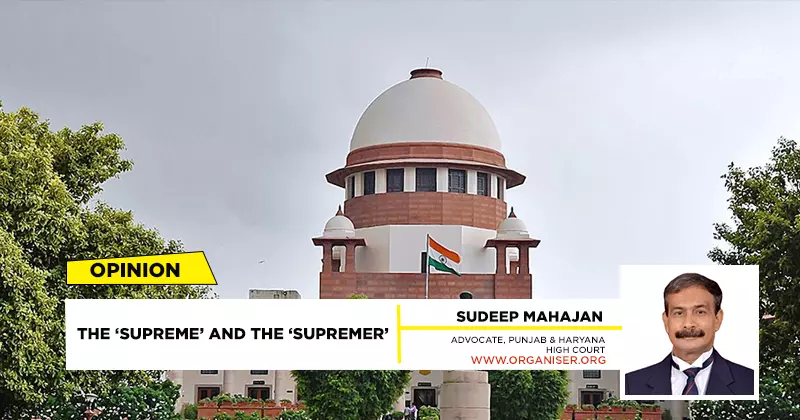
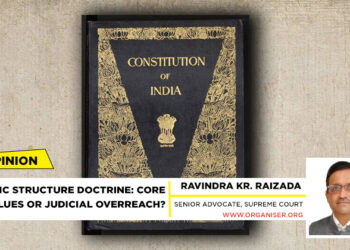
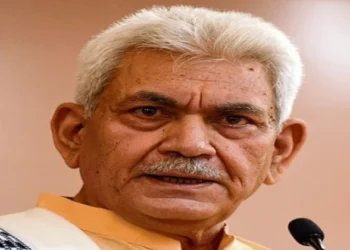
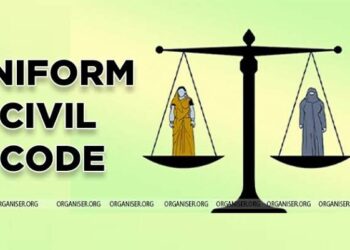
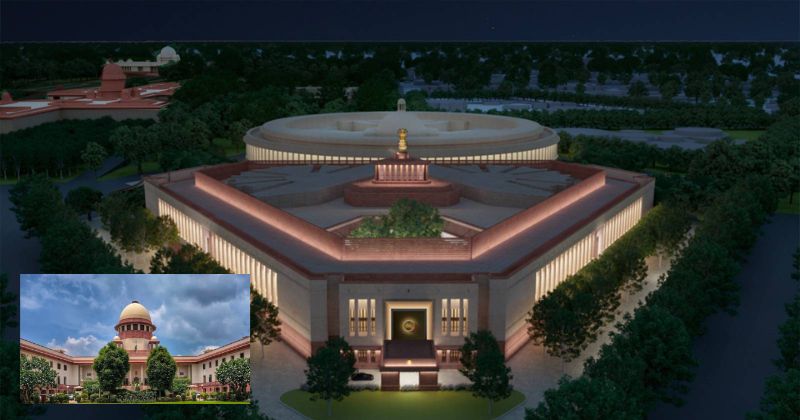

















Comments